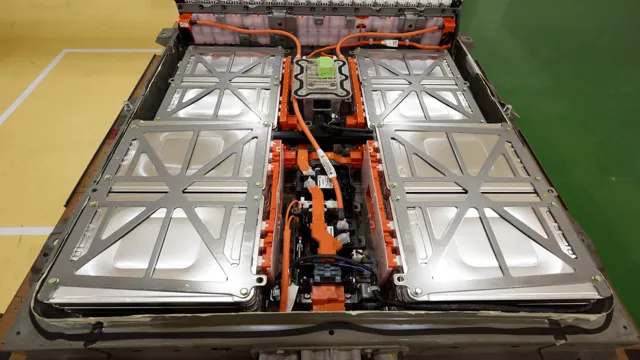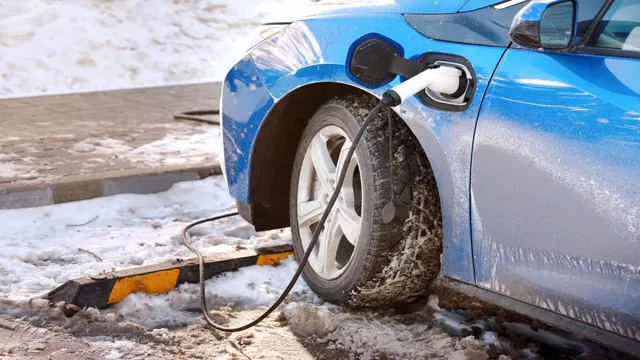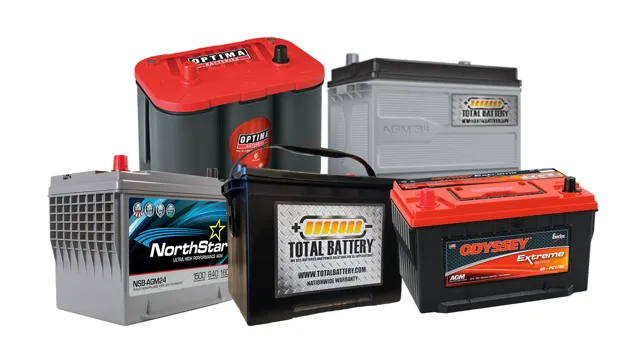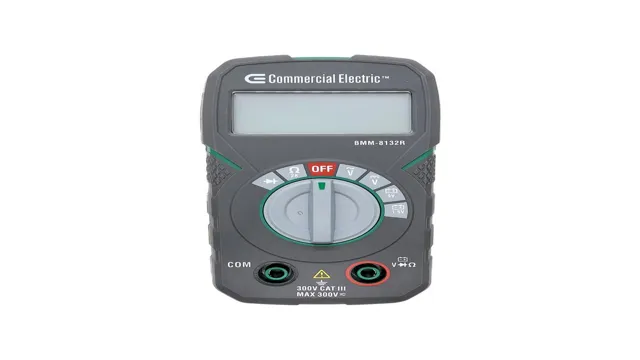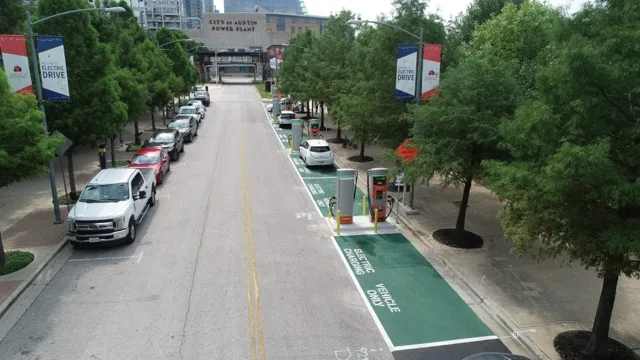Powering the Future: Top Electric Car Battery Companies in France You Need to Know About
As the world shifts towards sustainable energy, France has been making strides in the electric car industry. With the government’s goal to have no more petrol or diesel cars on the road by 2040, electric cars are becoming increasingly popular in the country. However, one crucial aspect of these environmentally friendly cars is their batteries.
As consumers search for options that offer high performance and reliability, the demand for advanced electric car batteries in France continues to rise. In this blog post, we’ll explore the history of electric car batteries, the current state of the technology, and the future of electric car batteries in France. So, sit back, relax, and let’s dive into the world of electric car batteries.
Top Companies
France is making strides to become one of the leading countries in electric car battery technology, and there are several companies leading the way in this field. One of these companies is Saft, which became an affiliate of French energy company Total in 201 Saft specializes in the manufacture of high-power lithium-ion batteries used in electric vehicles and energy storage systems.
Another major player in the French electric car battery industry is Blue Solutions, a subsidiary of the Bolloré Group. Blue Solutions offers a range of products including electric car batteries, car-sharing services, and energy storage systems. The third company is Forsee Power, which designs and manufactures batteries for electric vehicles, buses, trucks, and boats.
While these three companies are leading the way in France’s electric car battery industry, they are also gaining global recognition for their innovation and contributions to cleaner, more sustainable mobility. With the increasing demand for electric vehicles, it is safe to say that France will continue to play an important role in shaping the future of transportation.
Tesla
When it comes to the top companies in the automobile industry, it’s impossible not to mention Tesla. The California-based company founded by Elon Musk has revolutionized the way we see electric vehicles. With a sleek, futuristic design, Tesla’s vehicles have become synonymous with innovation and luxury.
But it’s not just about the looks – Tesla’s cars are also known for their cutting-edge technology and incredible performance. The Tesla Model S, for example, has been praised for its impressive acceleration and long-range capabilities. Tesla has also been a leader in the development of self-driving cars, with its Autopilot system being one of the most advanced on the market.
But Tesla’s impact goes beyond just the vehicles themselves – the company has also been instrumental in promoting sustainable energy and reducing our dependence on fossil fuels. With a strong commitment to innovation and a dedication to creating a better future, it’s no wonder Tesla is considered one of the top companies in the automobile industry.
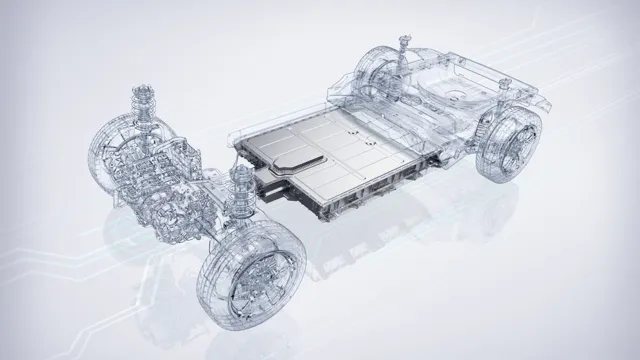
Renault
Renault, one of the top players in the automotive industry, has a rich history of producing stylish and reliable vehicles. Headquartered in France, the company has been in operations for more than a century and is renowned for its cutting-edge technology and innovation. Renault offers a range of vehicles from small city cars to larger family models, all tailored to meet the needs of different consumers.
The brand is known for its iconic models such as the Renault Clio and Renault Megane, which have been a hit with car enthusiasts worldwide. Renault has invested heavily in electric and hybrid technology, and it’s one of the leading automotive companies in this emerging field. Buyers can choose from a range of electric cars like the Renault Zoe, which offers a long driving range and fast charging.
Overall, Renault has established itself as a reliable and affordable automaker, delivering high-quality products that meet the needs of different customers.
PSA Group
PSA Group is a top automotive manufacturing company that is headquartered in France. The group is commonly known for its well-known brands including Citroen, Peugeot and DS Automobiles. The PSA Group has been producing quality vehicles for over a century, and has become a leader in the industry.
The company is renowned for its dedication to innovation and customer satisfaction, which has led to the development of cutting-edge technologies. Additionally, the PSA Group has consistently leveraged its vast experience in the industry to produce high quality vehicles that are both affordable and reliable, and that exceed customer expectations. Overall, the PSA Group is without a doubt one of the most respected and well-known automotive manufacturers on the planet.
So, whether you’re in the market for a reliable car or simply want to learn more about the industry, the PSA Group is definitely a company worth investigating.
Regulations and Incentives
Electric car battery companies in France are well positioned to benefit from the country’s regulations and incentives. In an effort to reduce carbon emissions, the French government has implemented a number of measures to encourage the adoption of electric vehicles, including tax breaks for buyers and grants for companies investing in EV infrastructure. This has created a favorable environment for companies involved in the production of EV batteries, and many French firms are now leading the way in this field.
One such company is Saft, which specializes in the development and manufacture of advanced batteries for the automotive sector. With its advanced technology and commitment to sustainability, Saft is well positioned to capitalize on the growing demand for EV batteries in France and beyond. Other companies in this sector include Blue Solutions, Bolloré, and Renault, all of which have made significant investments in EV battery production in recent years.
With the continued growth of the EV market, it is likely that these companies will continue to play a key role in shaping the future of transportation in France and beyond.
Energy Transition Law
The Energy Transition Law is an ambitious plan aimed at changing France’s energy mix to reduce carbon emissions and promote renewable energy sources. As part of this law, regulations and incentives have been put in place to encourage the adoption of these technologies and promote the transition to a low-carbon economy. For instance, there are tax credits and subsidies available for the purchase and installation of solar panels, heat pumps, and other renewable energy technologies.
Additionally, there are regulations requiring new buildings to meet certain energy efficiency standards, which will reduce the amount of energy consumed in heating and cooling homes and businesses. All of these measures are part of a larger effort to reduce France’s greenhouse gas emissions and mitigate the impacts of climate change. As individuals, we can all do our part by supporting renewable energy and energy efficiency measures in our daily lives, whether that means installing solar panels on our homes or simply turning off the lights when we leave a room.
EV Sales Incentives
EV Sales Incentives Electric vehicles (EVs) have been growing in popularity in recent years as a more eco-friendly alternative to traditional gas-powered vehicles. To encourage consumers to make the switch, many governments around the world have implemented regulations and incentives to promote the purchase of EVs. These incentives can include tax credits, rebates, and exemptions from certain taxes and fees.
Additionally, some cities have implemented policies such as allowing EVs to use HOV lanes or offering free parking and charging stations. The goal of these incentives is to make EVs more accessible and affordable to the average consumer. By doing so, governments hope to reduce harmful emissions and improve air quality.
While there may be some initial costs associated with purchasing an EV, the long-term savings on fuel and maintenance costs can make it a worthwhile investment. Overall, these regulations and incentives have played a significant role in driving the growth of EV sales and promoting a more sustainable future.
Charging Infrastructure
Regulations and incentives play a crucial role in the development of charging infrastructure for electric vehicles (EVs). Governments worldwide are working towards creating policies that facilitate the growth of EVs in their countries. For instance, in the US, the federal government, as well as state governments, offer incentives, tax credits, and subsidies to encourage consumers to shift towards EVs.
Additionally, in Europe, the EU has set targets to reduce carbon emissions and is promoting the use of low-emission vehicles by providing financial incentives and subsidies. Governments are also introducing regulations, such as mandating the installation of EV charging stations in public places and building codes. In India, the government has mandated the installation of charging stations at every 25 km on both sides of highways.
These initiatives will not only promote the adoption of EVs but also create a favorable environment for investment in the charging infrastructure industry. Such a supportive framework will help address the range anxiety issues of drivers and encourage more people to consider buying EVs.
Future Outlook and Innovations
France is quickly becoming a center for innovation in the electric car battery industry, with a number of companies emerging as leaders in the field. These companies are working to develop new, more powerful lithium-ion batteries that are capable of providing longer range and faster charging times than ever before. Some of the key players in this industry include Saft, which is one of the world’s largest manufacturers of lithium-ion batteries, and Blue Solutions, which specializes in developing batteries for electric vehicles.
Other notable companies in the space include Bollore and Forsee Power, both of which are working to develop next-generation batteries that offer even greater performance and efficiency. With the demand for electric vehicles continuing to grow, these companies are poised to play a major role in driving the shift towards a more sustainable transportation system for the future.
Conclusion
In conclusion, the electric car battery companies of France are charging forward into a future of sustainable transportation. These companies are not just changing the game, they are leading it, with their innovative technology and commitment to reducing our carbon footprint. With their batteries powering some of the world’s most popular electric cars, it’s clear that France is quickly becoming a major player in the race towards a greener future.
“
FAQs
What are some of the top electric car battery companies in France?
Some of the top electric car battery companies in France include Saft Batteries, Ecovolta, and Blue Solutions.
What types of batteries do these companies produce?
Saft Batteries primarily produces lithium-ion batteries for various industrial and consumer applications, whereas Ecovolta and Blue Solutions specialize in the production of batteries for electric vehicles.
Are these companies solely based in France or do they have international operations?
While all three companies are headquartered in France, they also have international operations and supply their products globally.
Are there any other notable electric vehicle battery companies based in France?
Other notable electric vehicle battery companies based in France include Forsee Power, which specializes in batteries for public transportation, and GBatteries, which develops fast-charging technology for electric vehicle batteries.
